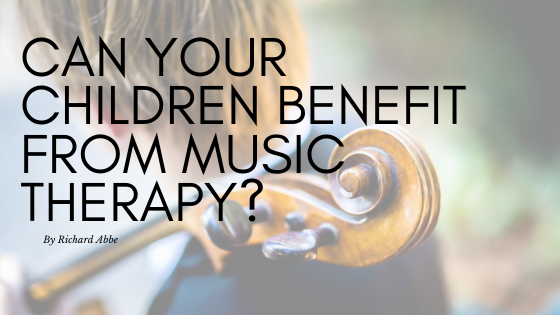Music is a truly powerful thing. Certain songs have the ability to transport us back to where we were the first time we ever heard it, reminding us of a specific time in our life. Other songs can bring up old memories we have of a special person. Music is able to give us energy, help us relax, or motivate and inspire us. That is why it comes as no surprise that music therapy is something that many children can benefit from.
Studies have shown that music can help children to relax and make it through difficult emotional situations. Not only is it a great tool to use when teaching your kids, (remember the song about states?) but it also helps them to build on their social and communication skills.
Since ancient times, music has been used to heal people. Michigan State University introduced the first official music therapy degree program in 1944. During wars, musicians have traveled the world to play for soldiers in need of a morale boost. Hospitals welcome musical artists to perform for patients and lift their spirits. So what exactly is music therapy?
Music therapy is defined by the American Music Therapy Association as “an established health profession in which music is used within a therapeutic relationship to address physical, emotions, cognitive, and social needs.” During the course of this year, everyone has had to address a growing number of issues within our society. Perhaps, music therapy could improve your child’s ability to cope with the plethora of stressors that they are being subjected to throughout such difficult times.
There are a number of benefits for children who participate in music therapy. Since the pandemic, schools were closed early and many people are beginning to notice that their children’s behavior is changing or that they are more frequently upset. Music therapy can help to reduce stress and encourage relaxation, even in young children. Furthermore, as the goal of music therapy is to improve coping abilities and manage stress and pain, children can find solace in participating and be assisted in getting through traumatic experiences.
Perhaps the summer camp that your child was going to attend this summer is canceled. While every child is different, introducing a musical instrument may be a great way to keep your child busy, while also increasing their self-esteem and hand-eye coordination. Music therapy can help to boost the type of learning that takes place in the motor and auditory areas of the brain.
There are a number of resources available online. One would also be surprised at the number of organizations locally that offer music therapy, such as Mount Sinai in New York.

